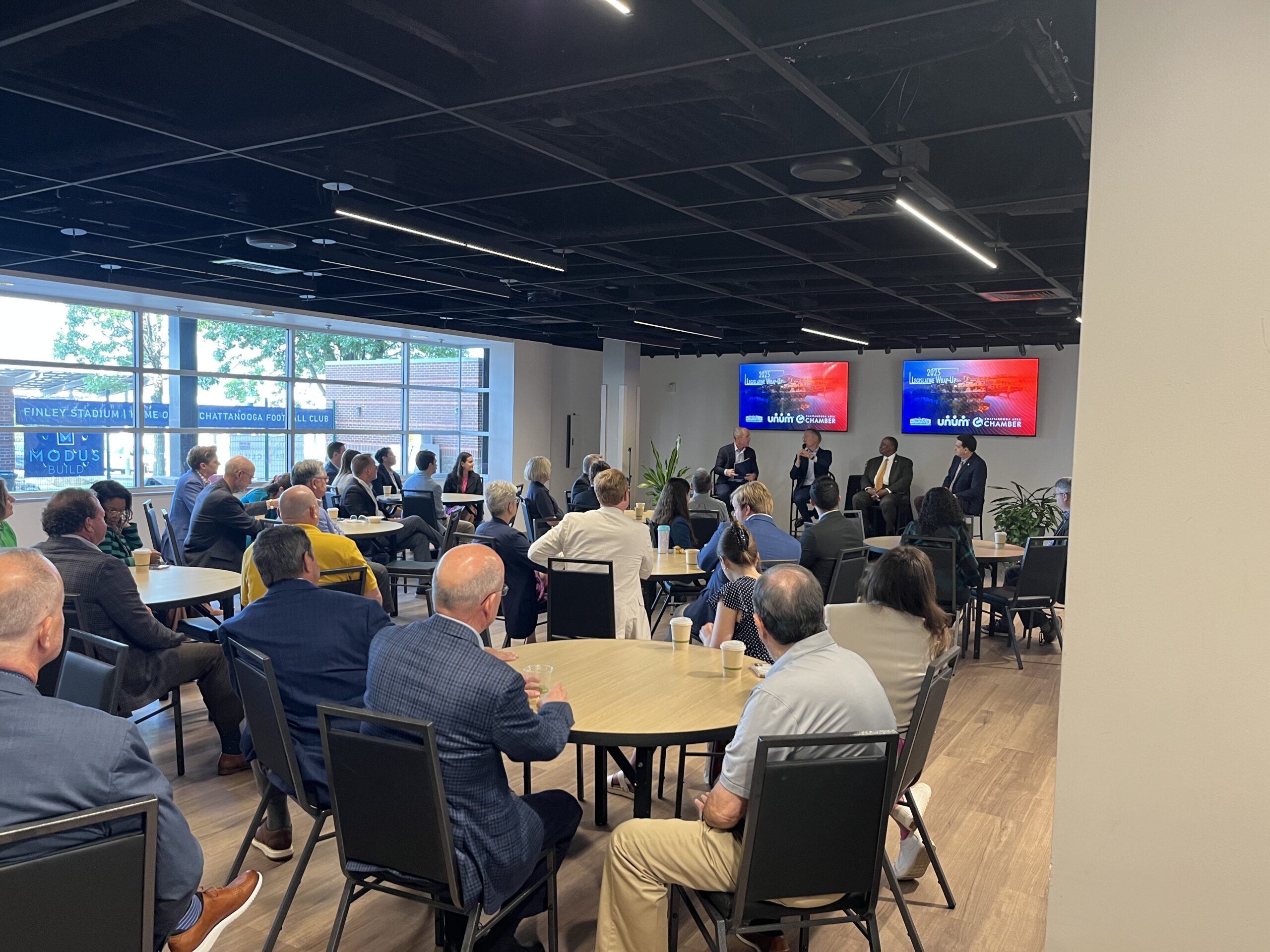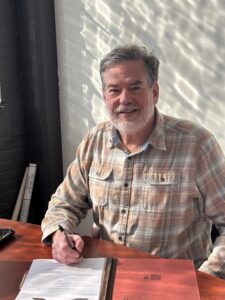On Wednesday, June 4, the Chattanooga Area Chamber of Commerce welcomed a full house of approximately 150 community members to the Finley Stadium Ultra Club for its annual Legislative Wrap Up. The event featured a panel discussion with three members of Chattanooga’s state delegation—Senator Bo Watson, Representative Greg Martin, and Representative Yusuf Hakeem—who fielded questions on key issues from the recently concluded legislative session.
Special Session Reflections
The conversation opened with reflections on the governor’s special session. Senator Watson noted that the session was tightly focused on school choice and immigration, while Representative Martin added that disaster relief, particularly in response to Hurricane Helene, was also a central concern. Representative Hakeem described the session’s atmosphere as “a bit chaotic,” expressing hope for more structured debate in future sessions.
Transportation and Infrastructure
When asked about transportation and the introduction of “Choice Lanes,” Representative Martin explained that the state is still studying optimal locations and implementation strategies, emphasizing that these lanes are intended to complement existing roadways. Senator Watson highlighted the nearly $1 billion budget allocation for transportation and praised the unprecedented infrastructure investment in Hamilton County. He also confirmed that the I-75/I-24 interchange project remains on track for completion within a few years.
Budget Priorities and Public Safety
The delegation outlined the state’s budget priorities, with Senator Watson identifying school choice as Governor Lee’s top focus. He also emphasized the importance of disaster preparedness and public safety, including measures for schools, churches, and synagogues. Representative Hakeem raised concerns about the potential impact of school vouchers on public education, warning that they could deepen existing inequalities.
Energy and Economic Growth
On the topic of energy, Senator Watson pointed to growing concerns about capacity, especially with the rise of AI and other high-demand technologies. He noted that the state is actively recruiting companies in the energy sector. Representative Hakeem expressed hope that Chattanooga and Hamilton County will play a central role in that growth, while Representative Martin emphasized the importance of energy independence.
Technology and AI Regulation
The delegation also addressed the rapid evolution of artificial intelligence. Senator Watson likened the current moment to “building the plane as we’re flying it,” and expressed disappointment that federal legislation may limit states’ ability to regulate AI. Representative Martin drew parallels to early fears about the internet, cautioning against overregulation. Representative Hakeem argued for accountability, comparing harmful AI applications to counterfeiting and advocating for penalties when livelihoods are at risk.
Federal Influence and Fiscal Outlook
The panelists discussed how federal policy is shaping state decisions. Representative Hakeem criticized the federal government’s retreat from public assistance, while Representative Martin voiced concern over the lack of federal budget discipline. Senator Watson warned of looming fiscal challenges as pandemic-era funding expires, particularly for programs like literacy and summer bridge initiatives. Representative Hakeem questioned whether the average citizen is truly benefiting from current policies.
Revenue and Economic Drivers
Finally, the delegation addressed Tennessee’s revenue streams. Senator Watson identified the grocery tax as the state’s most stable source of income, followed by sales and business taxes. He emphasized the importance of a strong business sector and noted that property taxes are levied at the local—not state—level. Representative Martin highlighted tourism as a key contributor, noting that Tennessee ranks 11th nationally in tourism-driven sales tax revenue.
Closing Thoughts
The Legislative Wrap Up offered attendees a rare opportunity to hear directly from their elected officials and engage in meaningful dialogue about the state’s direction. With thoughtful responses and candid reflections, the delegation provided valuable insight into the challenges and opportunities facing Tennessee in the months ahead.













